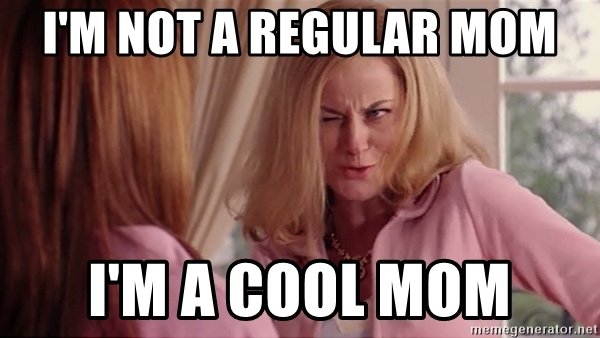I’m Not a Regular Therapist - I’m a Cool Therapist
The article you are about to read is one that I originally wrote in October 2021.
I hope you can forgive me for the familiar content if you have read it before, and if not – I welcome you first time reader.
Reposting my own content is part of a reclamation process I am going through to reclaim my agency, my property, and my power as a proud Queer and Racialized Social Worker, Therapist, and Human Being.
- Lewis
---
If you take a look at my therapist profile, my Psychology Today profile, or my professional Instagram, the chances are that you’ll find out some personal information about me.
Many Social Workers, Therapists, and other mental and physical health professionals might balk at the very thought of their clients knowing anything about them whatsoever; some schools of thought still tell us that self-disclosure is never appropriate, 100% of the time.
I don’t subscribe to this school of thought because I’m not a regular therapist, I’m a cool therapist (that one’s for you, millennials).
Here’s what I say to every client I work with – I’m the type of therapist that believes in the use of self.
So, what do I mean by the use of self?
In therapy I explain the use of self like this – I have education, I have work experience, but I also have lived experience. My degrees, my history with different working environments, and experiences are the things that are traditionally valuable in the therapy market, but why should they be any more valuable than my lived experience?
Here’s where I’ll get conceptual.
Therapy, North American education systems, and work systems – for the most part – are constructs that are grounded in White and Colonial ideals. In many Racialized communities - including the Caribbean community that I identify with - storytelling and life experience is integral in passing on knowledge, folklore, and maintaining identity. In practicing equity and approaching therapy through the ideals of anti-racism, I believe that the use of self is just as valid of a therapeutic strategy when applied in a clinical setting as any other approach.
Something should also be said for having a therapist that is able to identify with some of your communities and experiences – a more intrinsic understanding of challenges and barriers. Have I sat at my computer googling “Black and Gay Therapists”?
Absolutely.
In accessing mental health therapy years ago while experiencing racial microaggressions in a workplace, a Non-Racialized therapist attempted to support me in challenging my anxious thought distortions about the situation.
While well-meaning on the part of the therapist, this process risked being a lot more damaging than helpful to my mental health. I absolutely had anxious thoughts, however, labelling them as distorted dismissed my reality of racial microaggressions being used against me in the workplace. The therapist was not able to understand my lived experience or why this was creating a psychologically unsafe environment; a little validation could have gone a long way.
I share this story because in practice, it is still a clinical decision when the use of self will be valuable to add substance to session work. The combination of the use of self and more traditional psychotherapy approaches helps me to effectively support clients through their challenges and improves treatment outcomes.
Being a vocal advocate and self-identifying as a Black and Queer therapist is a decision to help build rapport and understanding between myself and clients. Access to a Racialized therapist for my specific aforementioned challenges may have changed the course of my treatment journey at that time.
Now, do I just talk about myself for the entire therapy session?
No!
Each therapy session is specifically tailored to the client’s needs at that moment in time. You should be in charge of directing your therapist and the session. After all, you are the expert in your life – we’re just the ones who practice psychotherapy.
The experience of emotion is based in lived experience. Everyone has emotions and react in the way that they do to certain stimulus based on their life, their experience with that emotion, and whatever feeling, belief, or sensation that the emotion may conjure.
The therapist sitting across from you is not a robot. We also all have emotions; pretending that we don’t at times experience emotion in a session would be ludicrous and frankly, completely false. So why shouldn’t we draw from this knowledge base?
Therapists can and should have the use of self as a tool in session, as long as they are keeping the best interest and needs of the client paramount, and acting in a way befitting the ethics and values of the profession.
I’m the type of therapist that believes in the use of self.
I went to school, did my studies, maintain competencies, and have working experiences.
I’m Black. I’m Queer. I have anxiety and ADHD. I’ve experienced depression, traumas, hard times, and challenges. I have experienced racism, queerphobia, and other -phobias and -isms.
Sometimes, I too tire of being resilient, and just want to live my life.
I’m the type of therapist that believes in the use of self because I believe in being human.

